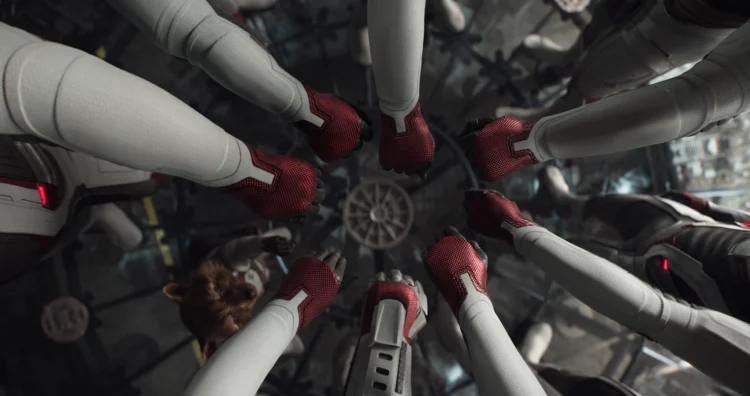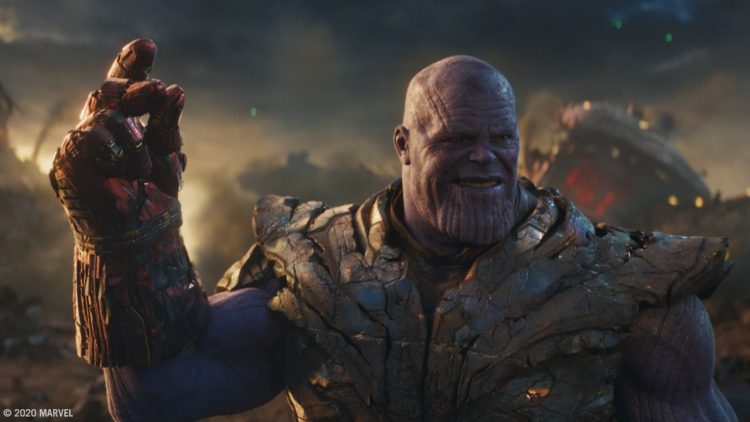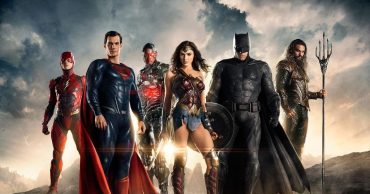Thor: Love & Thunder brought more of Taika Waititi’s unique style to the MCU, but contained a plot hole that ruins Avengers: Infinity War and Avengers: Endgame. Avengers: Endgame finds the heroes reeling from Thanos’ successful plan to gather all six Infinity Stones and use their power to eliminate half of all life in the universe, then destroy the stones to prevent anyone from undoing it. When Ant-Man is saved from the quantum realm, he suggests using time travel to collect the stones from various points in history and use them to reverse the Snap.
That’s all well and good, but Thor: Love & Thunder introduces a being named Eternity. Eternity is an entity of cosmic power that can grant a single condition-free wish to the first person who reaches them, which Gorr the God Butcher, played by Christian Bale, plans to use to kill every god in existence. While this makes for a compelling plot for a movie centered around the Norse gods, it creates as many problems for the wider MCU as Eternals’ Emergence plotline. All of the Norse characters in Love & Thunder seem to be aware of Eternity’s existence; it seems odd that not one of them would have mentioned the benefits this could have had for fixing so many earlier problems.
Eternity Would Have Been A Better Endgame Solution Than Time Travel

Thor: Love & Thunder set the stipulations of this entity fairly clearly. Eternity exists in a physical space somewhere and doesn’t require any Infinity Stones to reach. Seeing as Thanos just destroyed them all, this should have been the very first suggestion Thor makes at the Avengers roundtable. Even if the existence of Eternity was just a folk story or something the Asgardians didn’t truly believe in, the instant elimination of half of all life seems like a “no bad ideas” scenario.
The other thing to consider is how unpredictable and inconsistent time travel proved to be. Scott Lang set up an experiment to test it and nearly aged himself out of existence on the first attempt. Bruce Banner has seven PhDs, several of which are in fields the time machine directly used, and even he wasn’t able to make it work. Only the intervention of Tony Stark’s nigh-magical intellect was able to crack it, but even then the plan was dangerous. Nothing about his version of the machine guaranteed it would work the way he predicted (and he certainly has a history of inventions going awry – there was an entire movie about the problems Ultron caused), and required Pym Particles in order to function, which they had an extremely limited supply of.
Compare that to the alternate plan: Thor loads up all of the Avengers on a boat and they fly to Eternity. Obviously, there’s danger here as well; the journey took time and effort, otherwise Thor: Love & Thunder wouldn’t have been a movie at all. But with neither Gorr nor Thanos chasing them, it certainly would have been much less harrowing than the Time Heist.
Thanos Could Have Used Thor 4’s Eternity Wish

Even beyond the shortsightedness of the heroes in Avengers: Endgame’s time heist, it’s unclear why Thanos himself didn’t use the power of Eternity to fulfill his grand mission either the first or second time around. If the Asgardians (and Gorr) have full knowledge of Eternity and what it can do, surely Thanos would have been able to find out about it as well. On the face of it, one trip to Eternity appears like a better bet than chasing down six Infinity Stones. If his mission were that important to him, getting it done as quickly and easily as possible and minimizing the chance of something going wrong seems like the smart choice.
Thor: Love & Thunder tries to approach the question by establishing that only Gods know about the existence of Eternity, much less where it is. But the movie answers its own question by telling the audience that Gorr tortures gods to get the information out of him. Thanos certainly isn’t against torture, so unless he’d never come across any gods over the course of his genocidal rampage, the odds of this plan not occurring to him are pretty slim.
Is The Eternity Wish Really Free?
The most reasonable explanation is that Thanos knew about the existence of Eternity and chose not to use it. While Thor: Love & Thunder explains that Eternity is omnipotent and the wish provided is condition-free, some very quick shots in the film appear to say otherwise. Eternity is described as the living embodiment of the universe. That one word, “living” may be the key to plugging the plot hole.
At the conclusion to Thor: Love & Thunder, Thor convinces Gorr that the more compassionate thing to do would be to use the wish to bring back his daughter rather than kill all gods. When they do this, there is a single shot of Gorr’s daughter reflected in the watery ground of Eternity’s realm, where her silhouette appears to be that of Eternity itself (or Singularity, as some comic readers speculate). This appears to indicate that whatever one wishes, Eternity will have some conscious will over the outcome. And if this is the case, Thanos would rather use the Infinity Gauntlet which would give him full control over his mission.
 Follow Us
Follow Us




